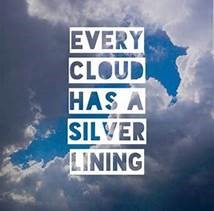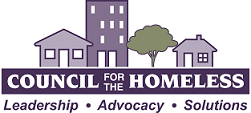 By Kate Budd, Council for the Homeless
By Kate Budd, Council for the Homeless
The Covid-19 crisis is nothing to sugar coat. It has led to inexplicable suffering, economic distress and fear across our nation and far beyond. Those who are vulnerable, including people with disabilities, those wavering in recovery, those who are who are unhoused and those who are low-income have all experienced even greater challenges due to this crisis. Those who are food insecure, domestic violence survivors and/or those who identify as members of non-dominant cultures have found their everyday challenges exacerbated. This crisis has placed people and families who are vulnerable front and center, making the systemic inequities that plague each of these populations more blatantly urgent.
Whether it is fear, empathy, justice or plain boredom, the human nature to do something to help others has once again risen up with a vengeance against a growing sense of apathy within our communities. In Clark County and beyond, this motivation has done more to address the basic needs of people experiencing homelessness than the past decade with a strong economy. The community and our partners across a variety of sectors have been generous, compassionate, innovative, nimble, and have moved quickly with a sense of urgency, creating many new and increased silver linings within this cloud of Covid-19. The challenge now, is how we as a community will build upon the progress as we learn to live our new normal?
In order to think beyond COVID-19 and its negative effects, we must also look at the silver lining of how our community is responding to the needs of people experiencing homelessness and the potential it reveals for the future. In addition to ramping up our agency’s capacity to connect people with shelter, housing and rent assistance, the Council for the Homeless continues to provide technical assistance, funding, facilitation, matchmaking between partners and systemic advocacy in order to help progress many efforts. This is the type of coordination work we were created to do over thirty years ago.
The list below describes many collaborative efforts (and there are more) that are taking place in Clark County to meet the basic needs of those who are unhoused and vulnerable to homelessness.
- Over 100 households experiencing homelessness were provided the opportunity to social distance from the safety of a local motel room due to being high-risk of the virus.
- Andrew Lutheran Church and Share continued their amazing relationship to offer nightly shelter to 30 people over a month longer than anticipated.
- The Vancouver Chinese Association generously leveraged their relationship with a Chinese supplier and provided hundreds of N-95 masks to local hospitals, non-profits and groups.
- Go Connect paired with Immanuel Lutheran Church through the Safe Park program to offer an increased number of places for people living in their care to park across the County. This safe park site increases the Clark County total to eight!
- Living Hope Church welcomed tent campers to their parking lots, providing a safe and sanctioned place for those without homes to sleep and meeting their basic needs.
- WA Recovery Alliance opened up a handwashing and restroom station for people who are unhoused, providing what the local government could not when nearby the Navigation Center closed.
- Living Hope Church, the Live, Love Center and Angels of God partnered to provide four lunches a week and showers, through Food with Friends Shower Outreach Project.
- Share continues to offer shelter space in their dining room, choosing to remain open instead of closing at the end of the winter.
- 126 households received rent assistance through Council for the Homeless since the COVID crisis started through April.
- A 116 bed motel was turned into shelter for people affected by COVID-19 and without a home by Clark County Community Services. This includes 53 rooms for people who are at high-risk of COVID.
- The Clark County Food Bank is partnering nearly all of the above efforts, to provide needed food to people in motels, on the streets, in shelters, in their cars and beyond.
Jess Hill, a domestic violence advocate shared that, “Even in our grimmest moment, we can hold despair in one hand and hope in the other. While everything is cancelled, maybe some of us will start to see the world – and ourselves – with a greater sense of clarity. Maybe this clarity will renew our determination to fight for something better than the status quo.” As we move through this crisis together, let us remember that we are all stronger, when we are all stronger. Let us not leave the most vulnerable behind as we plan for the “now” normal. This includes advocating for additional funding for housing at the Federal Level, using local CARES ACT funding for rent assistance and using existing funding to effectively reduce homelessness, rather than managing the symptoms.
